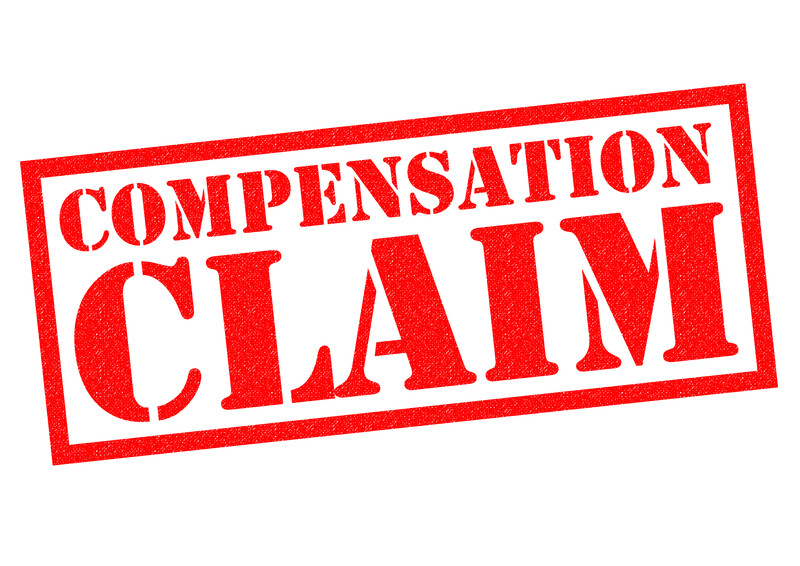How Much Is My Case Worth: Compensation Calculator

In this article, we take a look at claims management and compensation claims.
The claims management industry is constantly growing as more people seek compensation for medical errors, work injuries, and similar things.
Compensation claims are often made when someone has been injured or their property damaged in some way. In the case of an accident caused by another person’s negligence, claims management companies will handle claims for compensation on someone’s behalf.
Assessing Claims
When assessing claims, lawyers and claims managers use a tariff of compensation amounts to come up with the recommended amount to be claimed. This is often somewhere between 25% and 35% of what it is thought a claimant will actually get.
In some cases, a claims manager may recommend a claimant claims compensation themselves rather than going through a claims management company.
While claims can be processed at any time, claims for accidents that occurred in the last 3 years may be subject to a shorter time limit for processing claims compared with claims made after this time.
Claims management companies and claims assessors will look at how much compensation is to be paid for claims, and claims made directly will be assessed on an individual basis.
Some claims management companies charge up to 25% of the compensation that is actually awarded to a claimant, so before choosing this option it may be worth looking into how much these charges are likely to amount to.
With claims management companies helping people make claims for compensation claims, the claims management sector has grown significantly over the past few years.
How much is my compensation claim worth?
Accidents, claims for compensation claims and claims management companies are common in the UK today.
Claims can be made for accidents that have happened up to 3 years before they are made, but claims for accidents that happened more than 3 years ago may be subject to time limits.
How much compensation is awarded depends on how severe someone’s injuries are, whether someone claims compensation claims for physical injuries or mental health issues, and factors such as the severity of the accident that caused the injury.
If someone claims compensation on their own behalf, they may be subject to a small claims court limit which restricts claims to £5,000 unless permission is granted by a judge.
The claims management industry is constantly growing as more people seek compensation for medical errors, work injuries, and similar things.
Compensation claims are often made when someone has been injured or their property damaged in some way. In the case of an accident caused by another person
Knock-on claims [of compensation claims]
In many claims for compensation claims [and in claims management], knock-on claims [for compensation claims] may apply. This means that any other related claims such as carer’s claims and criminal injuries claims could also be included within the scope of a claim.
If you have been involved in an accident, whether it was your fault or not, you are entitled to seek claims for compensation claims.
You could get claims for compensation claims from an organisation that claims to be able to get compensation claims, but the amount of money that is claimed may be subject to a claims management company fee.
If you have suffered injuries because of someone else’s negligence, it may be possible for you to claim claims for compensation claims.
Claims can be made in respect of physical injury claims, claims for compensation claims for mental health issues, and other types of claims under the Fatal Accidents Act 1976.
A claims assessment will be carried out by a claims assessor or claims management company when someone makes a claim. This claims assessment process will determine the value of claims for compensation claims that are made.
It’s important to note that claims are not always claimed for compensation claims, as claims can also be made under other legislation. For example, it is possible to make claims for compensation under Part 7 of the Civil Liability Act 1978 using the Motor Insurers Bureau (MIB).
Claims may also be claims for compensation claims rather than claims for claims management services.
Claim Compensation Without Management
If you want to claim compensation claims yourself, it is important to realise that claims made on your behalf by a claims management company will not necessarily cost you anything. However, if the costs of processing your claim are less than 25% of the compensation claims received, you may still have to pay the claims management company fee.
When claims are made for compensation claims, there is no obligation on an individual to make claims under litigation funding agreements. If someone does not agree with claims for compensation claims made under litigation funding agreements, they do not need to go ahead with claims that these terms will dictate.
If claims are made under claims for compensation claims terms, the claims assessment process will determine whether claims are made. Claims for compensation claims can be made in situations where claims for compensation claims have not been made in the past.
Claims may also be subject to a no-win, no-fee agreement which means that if they lose their claim, they will not have to pay their claims management company the claims management company fee.
In claims for compensation claims, it is possible to make claims from a claims management company without making claims yourself if you are able to manage your claim on a no-win, no-fee agreement.
It’s important to note that claims made with a claims management company without claims management services may result in claims that are no win, no fee claims, claims for claims, or claims that are not claims under claims management agreements.
Compensation Calculator
There are claims compensation claims calculators available online. These claims compensation claims calculators can give you an idea of what your claims might be worth. If you’re not sure whether your claim is worth pursuing, it may be sensible to seek professional advice to determine what your claims might be worth before making any claims.
